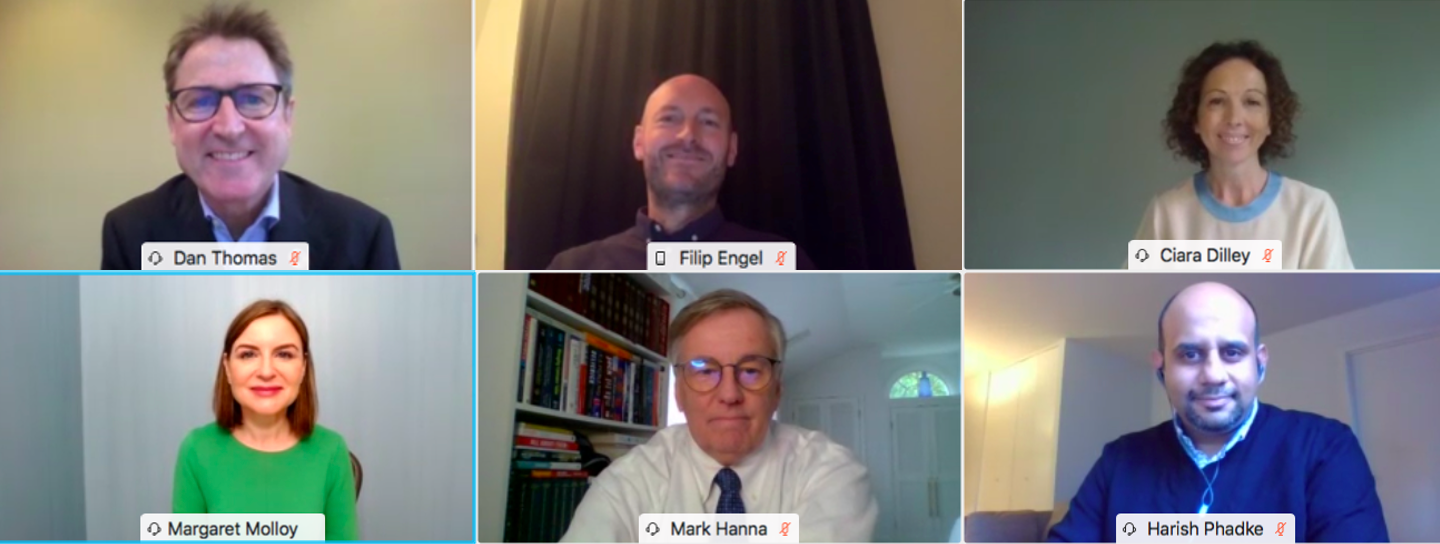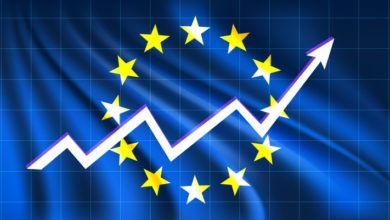[ad_1]
In 1987, the U.N. established Brundtland Commission defined sustainability as “development which meets the needs of current generations without compromising the ability of future generations to meet their own needs.” Today, articulating and living a compelling brand purpose has emerged as a clarion call for all brand leaders, and sustainability plays an increasingly essential yet complex role within brand purpose. COVID-19 has only accelerated the dialogue about sustainability and the planet.
On Thursday, October 29th, I explored this top societal issue with five marketing leaders from around the world. We discussed why projecting a brand’s societal goals is just as critical as marketing its products, the opportunity for business leaders to come together, share knowledge and collaborate for the greater good and the incredible role marketing play in balancing science with storytelling.
In closing, I asked our panelists: what gives you most optimism as it pertains to achieving sustainability goals? And what is your commitment to driving the sustainability agenda? Here’s what they had to say.

What gives me optimism is what I’m hearing from my fellow panelists and brands and companies worldwide because they want to work together. They recognize their role in society. They recognize their role in creating a more sustainable world for themselves, their stakeholders and consumers. That’s why we’re reaching out to marketing offices, creating an opportunity for brands to work together—a band of brands, if you will—to market their purpose as companies under the U.N. Global Compact brand. That is a first. We were keen to show, and they’re eager to show that they’re united in the business of a better world.
It’s no longer only up to governments to lead the world out of the crisis that we’re in a climate crisis, a health crisis right now, but also an inequality crisis. It’s an opportunity for private sector leaders, for the big brands, the trusted brands of this world to get themselves engaged in leading the world into a better place.
My commitment is something that we’re working on with our events. The U.N. Global Compact convenes the world’s sustainability leaders in many ways, and COVID-19 has allowed us to rethink how we do that. We’ve been doing it online and assembling vast numbers of people globally, but virtually. And that has led to a reduction in our greenhouse gas emissions—over 98.5 percent. We are committed to continuing to convene people virtually, even when things go back to normal. We recognize that people do not have to fly around the world; they do not have to stay in hotels and use taxis and contribute to global warming in order to come together to discuss these critical issues. Going forward, we’re going to convene people virtually and walk the talk ourselves.
—Dan Thomas, Chief Communications Officer, United Nations Global Compact
It gives me optimism that climate change and sustainability are now viewed as the right thing to do business-wise. I was part of the first wave of climate awareness back in 2007 in Europe. You would act on climate then, but essentially it would not be in your business interest. That has changed dramatically. Today you see that companies think that this is something they must do to stay in business. And as importantly, investors are changing the game. Pension funds are committing to net-zero emissions by 2050 and putting forward concrete plans on how to do that. You have big firms like Goldman Sachs committing to divest from coal, changing their portfolios and looking into how the lending programs can support a transition. It’s a movement, and though we’re not entirely there yet, it’s happening, and that in itself is a seismic shift.
Professionally, I am committed to continuing to work with my sustainability team to drive the agenda forward and in the company. In my private life, I would mention three things that I’ve done myself. Firstly, I’ve shifted my pension to a green product that’s very focused on climate. What’s interesting is that my portfolio of green investments performs better than what I had previously. Secondly, I fly less. If I have to fly, I try to offset that by investing in trees, which leads to carbon removal. Lastly, I cut down on my consumption of meat, notably beef. It’s stunning what it means for climate, water consumption and land-use change.
—Filip Engel, VP, Sustainability, Public Affairs & Branding, Ørsted
Two things are making me optimistic. Consumers desperately want us to drive the change and to help them do it. That’s an enormous pulling power for us as business leaders. The other piece for me is being united in the business world. This is one of those rare examples where business leaders have the opportunity to come together and collaborate, not in competition, not in a competitive spirit, but actually hold hands and say, we can do this if we pool our resources, if we invest in the right technology, if we share the knowledge of the insights we have as one group of leaders versus a disparate group. That is a wonderful opportunity for us to work differently.
I’m the mom of two little boys who’ve grown up much more advanced than we did in terms of sustainability. They know about recycling and composting. Growing up with these things as the norm, they almost question why it isn’t the norm. That gives me huge optimism, but it also makes me realize I have to take that very seriously because it’s my job to help make the future good for them. And then it’s wonderful when you have a job that you know you can make a difference. The big project we have at the moment is transferring our snack bags to biodegradable. That’s an incredible opportunity to live out my purpose and my responsibility through my job.
—Ciara Dilley, VP, Transform Brands & Portfolio Innovation, FLNA, PepsiCo
My optimism is that we see a business community, not just our industry but also so many, committed to purposeful action and a better world. The UN Global Compact is an incredible catalyst for this. I am optimistic because I see it growing constantly; I see it growing across industries.
I am committed to being part advocate, manufacturer and marketer of a world that sees that all jewelry is responsible jewelry; all precious metal products are responsible products; they all serve society without the negative. From speaking to being on boards, to working with my own company, this is a personal love that I have developed for this discipline above and beyond my marketing role.
—Mark Hanna, CMO, Richline Group, Inc., a Berkshire Hathaway Company
From a corporate perspective, I am very optimistic about where the company is going because, under the new leadership, they have a top-down push and a top-down buy-in. That is critical for any agenda. So much so, we’ve recrafted our mission statements to say that “we exist to protect, heal and nurture in the relentless pursuit of a cleaner, healthier world.” One of the big things associated with that mission statement is doing the right thing always. Increasingly I see companies willing to take a hit on their bottom line because they are making the right decision. That’s very encouraging for me. It is a dramatic shift from when I started in the company to where it is right now. With the changing times, there’s an evolution in mindset, as well.
I joke and say I think my family members hate me because I went to their homes, took all of their plastic bags and gave them reusable shopping bags to use. Even at the ground level, getting that sustainability mentality going amongst people is a pretty big deal. Living in New York City, I’ve stopped taking Uber and cabs. I bought myself a little bicycle, so I am biking around the city now. I think everyone does a small part. It’s all a cumulative effort. Not one person is going to make the biggest difference. You do what you can.
—Harish Phadke, Business Manager to SVP NA Health, RB
This is a biweekly series for brand-side senior marketers. To request an invitation, visit events.siegelgale.com
Source link






